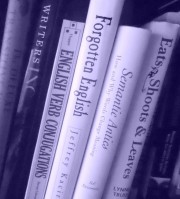You hear the word “story” thrown around a lot these days. Proposal writers, management consultants, fiction writers, marketers… The ubiquity of the story as the fundamental explanation for everything, from human behavior to the success of a startup means that the idea of story is begging for someone to slash its tires.
I only say this because every trend gets its comeuppance, not because I disagree.
So Merriam Webster definition of story includes: history; an account of incidents or events; a statement regarding the facts pertinent to a situation in question; anecdote; especially : an amusing one; a fictional narrative shorter than a novel; the intrigue or plot of a narrative or dramatic work; a widely circulated rumor; lie, falsehood; legend, romance; a news article or broadcast; or matter, situation.
I might define a story as a narrative told to express identity, share culture and/or values, entertain, or inform. That’s a pretty broad definition.
As a writer and human, I’m interested in what gets left out of those stories. The apocryphal events that get left out because they disrupt the flow of the narrative, distract from the point, or contradict the identity the storyteller wishes to convey to the audience.
In no particular order, some observations:
- Storytelling assumes an audience. Can a storyteller be completely truthful to an audience, even when the audience is him/herself?
- Notice how the language around story is incredibly slippery and self-referential? Somehow we all know what story means, but I dare you to give it a solid definition that can’t be modified and isn’t somehow lacking a critical component of what a story is.
- The one word can apply equally to a straight up fabrication and the verifiable truth.
- The definition doesn’t specify a structure, but we expect one: beginning, middle, and end. Acts one, two and three.
- Perhaps a story is like pornography: we know it when we see it.
- Does story really apply to everything? Can you change your story about what you like to eat in order to dramatically alter your physical presence? I really don’t think weaving a narrative in which I like Lima beans is genuinely going to make me into a rabid Lima bean eater. There are limits, aren’t there?
- Can you really write a report to Congress with such compelling narrative that it changes the legislative tenor of a bunch of lawmakers?
There is no doubt that narrative has changed the world. MLK’s I Have a Dream speech isn’t exactly a story in that it wasn’t fiction, it didn’t follow the three-act format, and it touched on a variety of topics all in the same piece. But it also, through the sheer genius of the writing & rhetoric, wormed its way into the imagination of millions of people and solidified his standing with the great American public servants.
Those of us who love words might try and assert that the only reason why the human learned to speak was to add to the firelight with a story that pushed the darkness just that much further back. We might argue that the only reason to write was for the sheer pleasure of making something up and being able to keep it. A merchant might point out that keeping ledgers was a more practical concern. But I write, so I like my theory.
I’ll leave you with my favorite euphemism for dishonesty… I never lie, I just story.
